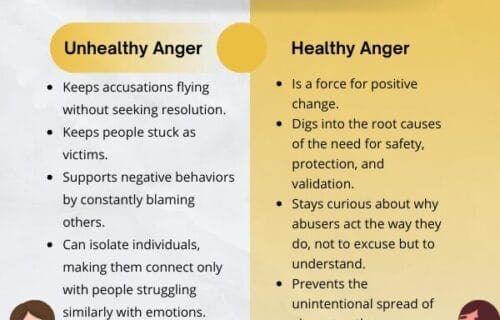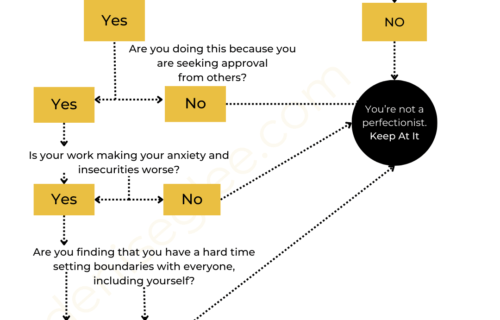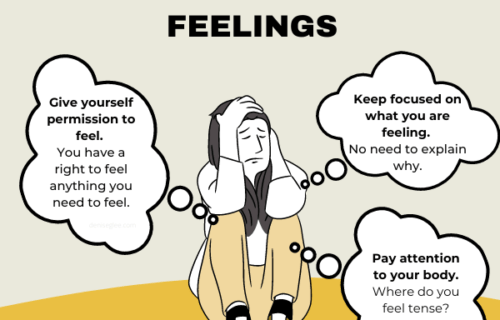
Understanding the Influence of Childhood on Adult Speech
As a life coach for business owners, one of the very first things I talk with clients about is language.
Language is crucial not just for getting your needs met but also for how you perceive the world and you.
For example, if you constantly use the words “maybe” or “could be” that signals doubts and insecurities. And those ideas didn’t come us, odds are they came from our role models (ex – parents, teachers, close relatives).
If we aren’t careful, those messages from the past can ruin anything good we want to plan or have going on in our lives right now.
In this article, we are going to examine how our childhood impacts our adult speech and how we can speak with confidence, clarity and kindness with everyone, including ourselves.
Why painful messages from the past impact our adult speech
Hurt-filled words from hurting people
Have you ever heard hurtful things from someone close in your family, someone you really care about?
Maybe they were having a bad day, feeling stressed, and said something without really thinking about it.
But what if this family member didn’t just have a bad day, but had a hard time talking about their feelings without yelling, belittling, or shaming you? That’s a big deal because the way we love and connect with others often comes from how we learned it when we were young.
I remember a really tough time when I was a teenager. I told my dad that I had thoughts about hurting myself. His response was, “Well, go and do it.” It was so sad and it stuck with me for a long time, making me feel unlovable.
Sticks and stones may break my bones, but words can also hurt too. The wrong words from the right people can and will kill your ambitions, goals, dreams, self-worth, confidence, and even your ability to have children.
Denise Lee Tweet
What did you hear as a child?
What about you? What messages did you get from your parents? Here are some questions to think about:
- How often did your parents show, not just say, that they loved you?
- On balance, how well did your parents handle disagreements with you or with others?
- When there was conflict or sadness, how did your caregivers or close family members work things out?
Who do you sound like most now as an adult?
Take your time to think about these questions. Now, consider yourself and answer these:
- Whose way of talking is similar to mine?
- When I’m feeling sad, angry, or disappointed, how do I talk to myself and to others?
As you read this, you may be thinking, “Oh, I know some of the things I say to others and myself are terrible, but I can’t stop. Why is that?” In the next section, we will discuss the science behind our adult speech patterns.
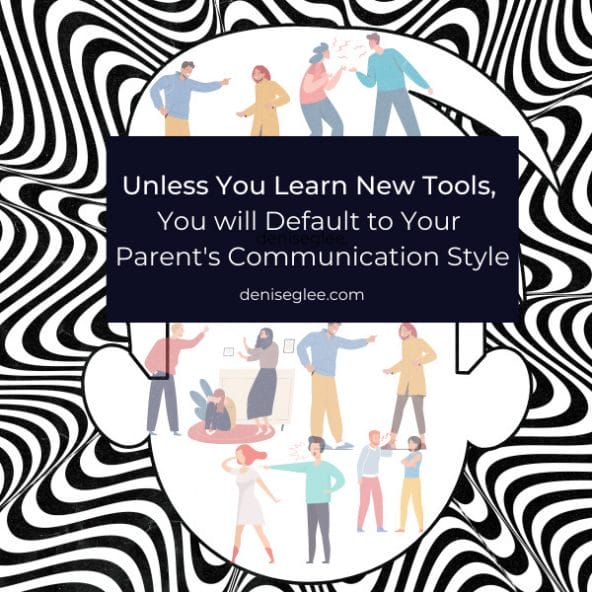
Why your adult speech is wired with nasty and hurt-filled ideas
Have you ever caught yourself using mean words, even though you really didn’t like hearing them when you were growing up?
If so, you’re not the only one dealing with this. Many people find it confusing why they keep using negative words, even when they’re trying hard not to.
Mirror Neurons: The Culprits Behind the Words
Mirror neurons are special cells in our brain play a big role in how we talk and use language. By the time we’re three years old, about 80% of these mirror neurons have already formed. They stick with us throughout our lives, shaping the way we communicate. But here’s the interesting part: these neurons don’t start from zero; they reflect the world around us as they develop.
If you grew up in a family where people often used harsh words, criticism, or put others down, those mirror neurons in your brain might have picked up on those patterns. So, even if you consciously know it’s not nice, your brain might still think this way of talking is “normal” or “okay.” It’s like your brain learned that even though it feels hurtful or wrong, this type of communication is acceptable.
Oh, and did I tell you about our genes playing a role in making us lean towards negative thinking?
The Natural Survival Instinct
Let’s break down why this happens. Our brains are wired for survival, thanks to our genes.
The main goal of nature is to make sure we tackle life’s challenges and get away from danger when needed. It doesn’t really care if our actions are good or bad in the long run. If your brain senses any danger, it’ll push you to say whatever it takes to protect yourself and get away from the perceived threat.
So, when you catch yourself using not-so-nice words, don’t be too hard on yourself. It’s just your brain doing its natural survival thing. The same mechanism that makes you go into fight-or-flight mode during emergencies can make you say things that might not be great for you or the people around you.
Sticks and stones may break my bones, but words can also hurt me. The wrong words from the right people can and will kill your ambitions, goals, dreams, self-worth, confidence, and even your ability to have children.
Denise Lee Tweet
Trained to repeat what was taught
Getting out of these old ways of talking can be pretty tough. If you don’t actively try to change the wiring in your brain – specifically, the Broca’s area that’s responsible for speech – it’s likely that you’ll keep talking in the same way you learned when you were a kid.
And here’s the tricky part: this can create a cycle where you end up using words that hurt not only others but also yourself.
But here’s the good news: we’re not stuck being mean. And no, we don’t have to be critical of everything and everyone around us all the time.
In the next part, we’ll dive into how we can talk more kindly to ourselves and embrace a more positive mindset.
Of course, it is hard to speak kindly to yourself at times. You may have found yourself repeating all the negative, critical, and judgmental comments you received from teachers, parents, friends, and close relatives. Add to the mix of conflicting and perfectionistic standards from culture, and you are bound to be critical and self-hating of yourself.
Denise Lee Tweet
5 Tips to Improve You Adult Speech For Yourself and Others
1. Notice How You React To Your OWN Words:
Pay attention to the words you use. Does it make you feel happy, sad or afraid? If you catch yourself saying something that is negative and self-defeating, take a moment to acknowledge it. Awareness is the first step.
2. Pause Before Speaking:
Before letting words out, take a quick pause. It gives you a moment to think and choose words that are more thoughtful and kind.
3. Empathy Check:
Put yourself in the other person’s shoes. How would you feel if someone said what you’re about to say to you? This can help you choose words that consider others’ feelings.
4. Positive Reinforcement:
Encourage positive speech by praising yourself when you speak kindly. It helps reinforce the good habit.
5. Apologize When Needed:
If you realize you’ve said something hurtful, don’t hesitate to apologize. It shows that you’re aware and willing to make amends.
Remember, changing the way we talk takes time and effort. Be patient with yourself, and celebrate the progress you make along the way. The image below summarizes my thoughts. Next, I will share my final thoughts.
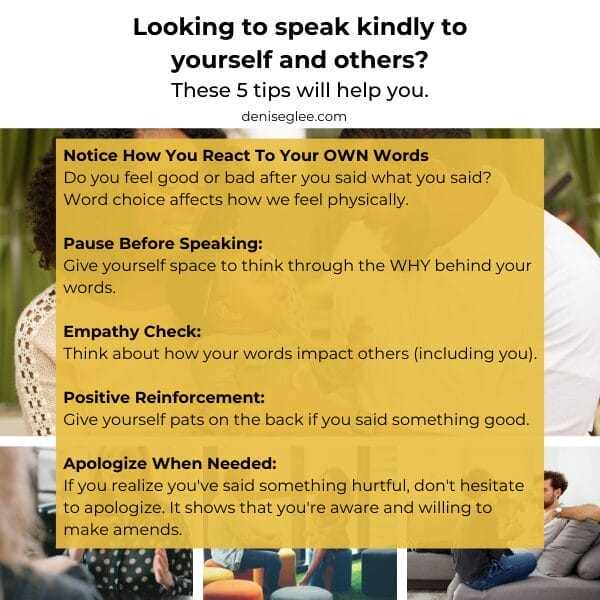
Final thoughts
Changing the way we talk as adults isn’t an overnight thing, but every little step counts. Be patient with yourself, and let’s celebrate the progress we make.
If you’re reading this article and thinking “Uh, I need more help,” don’t worry, I’ve got you. Never hesitate to reach out to me if you need 1-on-1 private support.
Additionally, here’s a link to an episode of my podcast that may also be helpful.


